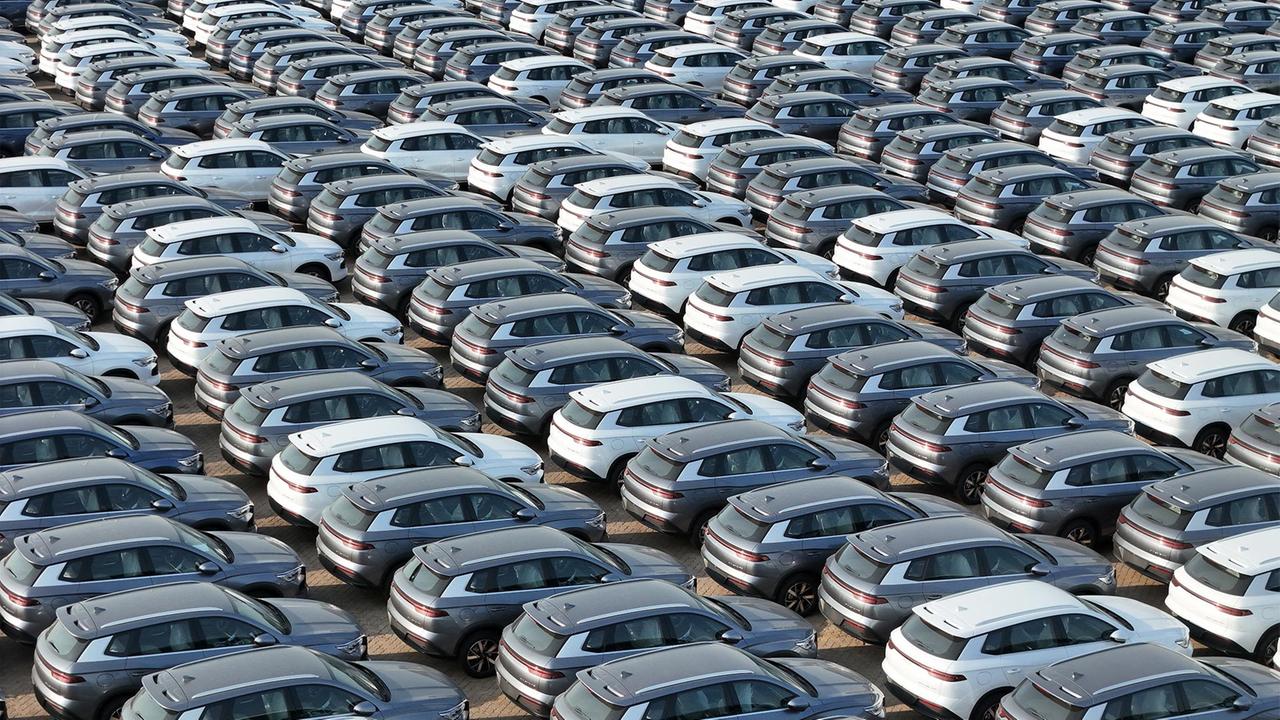The EU Commission has provisionally imposed additional import duties on electric cars made in China. Depending on the manufacturer, the surcharges range between 17.4 and 37.6 percent – in addition to the import duty already in force.
Accompanied by much criticism from Germany, the EU Commission is imposing provisional punitive tariffs on imports of electric cars from China from Friday. “The countervailing tariffs will apply from July 5 for a maximum period of four months,” the EU authority in Brussels announced.
However, the tariffs will not be officially introduced until November, by which time the EU wants to make a final decision on the tariffs. There is now a transition period until November in which companies do not yet have to pay the tariffs, but must guarantee them.
BYD, Geely and SAIC affected
The punitive tariffs will affect, among others, the company BYD, which is currently sponsoring the European Football Championship on a large scale. Specifically, BYD will face a provisional punitive tariff of 17.4 percent, Geely 19.9 percent and SAIC 37.6 percent. Geely produces, among other things, the electric Smart models 1 and 3 and the Volvo EX30. SAIC builds the MG4, which is popular in Germany. Other manufacturers will face 20.8 percent, and companies that did not cooperate in the investigation would face a punitive tariff of 37.6 percent.
The Commission had already announced the tariff surcharges on the previous rate of ten percent in mid-June. They are the result of an investigation by the EU Commission. This showed that the entire value chain for electric cars in China is heavily subsidized and that imports of Chinese electric cars pose a clearly foreseeable and imminent threat of damage to the EU industry. According to the Commission, Chinese electric cars are usually around 20 percent cheaper than models manufactured in the EU.
Germany fears Chinese reaction
In Germany, the EU Commission's actions are causing concern because there are fears of retaliatory measures that could hit German car manufacturers in particular. China is the largest car market in the world and, according to the Association of the Automotive Industry (VDA), was the third largest export market for cars from Germany in 2023 – after the USA and the United Kingdom. However, German companies could not only be affected by countermeasures, but also by the EU measures themselves – because some of their production is in China for export.
The reactions from the German car industry were correspondingly negative: “The introduction of additional import tariffs leads to a dead end,” explained BMW boss Oliver Zipse. They harm global companies, limit the supply of electric cars and slow down decarbonization. “The negative effects of this decision outweigh any benefits for the European and especially the German automotive industry,” said a Volkswagen spokesman.
Federal Minister of Economics Robert Habeck is also pushing for a political solution. Germany has no interest in “a tariff race that fragments the markets as a result,” he recently stressed. According to information from the Reuters news agency, countries such as France, Italy and Spain are in favor of tariffs.
China shows itself willing to compromise
After the EU decision was announced, China expressed its willingness to continue negotiations with the EU Commission. “I hope that the European and Chinese sides will approach each other, show sincerity and speed up the consultation process,” said a spokesman for the Beijing Ministry of Commerce.
Talks at working level have already begun and are still ongoing with the aim of finding a solution within the framework of the World Trade Organization (WTO). Despite the negotiations, China had repeatedly threatened to take countermeasures even before the punitive tariffs were introduced and could now impose tariffs on luxury goods, cognac or pork.
The EU states could only stop the proposed tariffs if a so-called qualified majority voted against the proposal. Qualified majority usually means that at least 15 EU states, which together make up at least 65 percent of the total population of the Union, must agree.
Car imports could fall significantly
According to a study, imports of cars from China into the EU will fall significantly after the introduction of new tariffs on electric vehicles. According to a study published today, the Kiel Institute for the World Economy (IfW) expects a decline of 42 percent. However, the prices of electric cars in Europe will only be slightly affected in the long term.
According to the researchers, the falling imports from China will be offset by increased sales from European producers and imports from other third countries. In China, prices for electric cars are likely to fall, while in Europe they will rise slightly by 0.3 to 0.9 percent. In the short term, these effects could be greater, according to the researchers.
Jakob Mayr, ARD Brussels, tagesschau, 04.07.2024 11:29 a.m.




